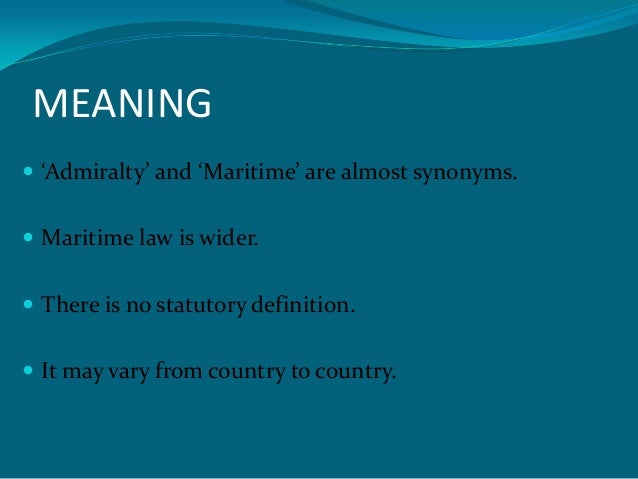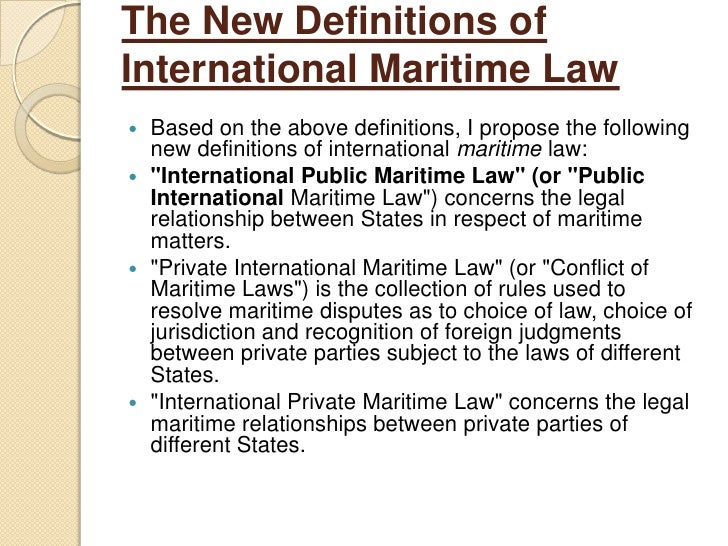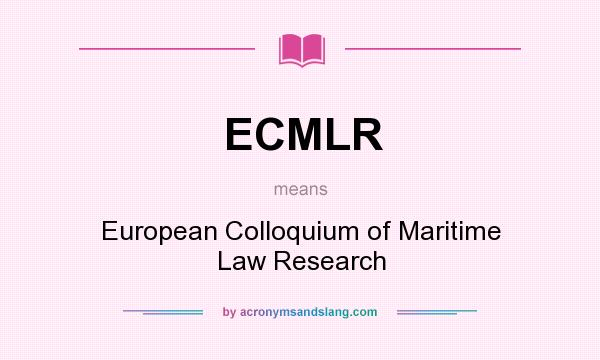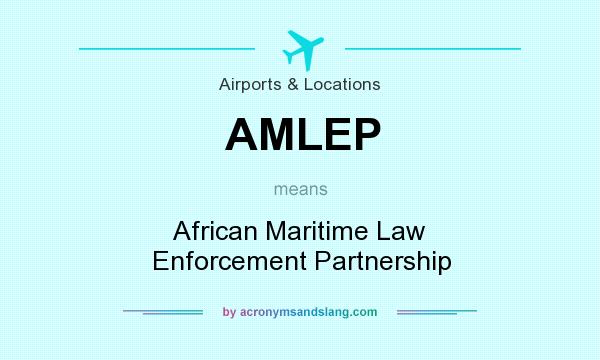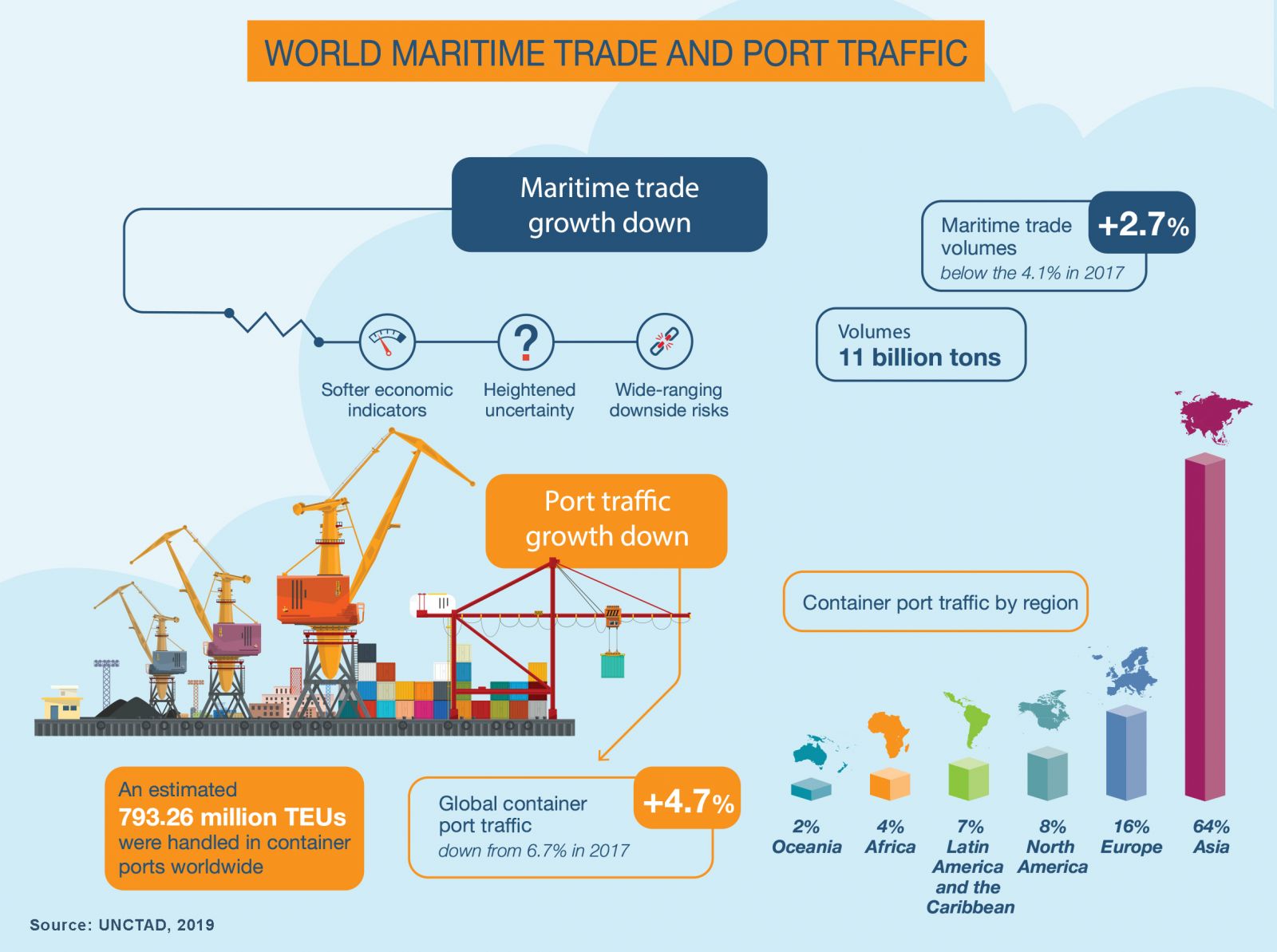What Does Maritime Law Mean
/aerial-view-of-container-ship-transporting-goods-sailing-across-ocean-leaving-the-port-990280300-934f4cbf67354ca3bed647bed8fea783.jpg)
Maritime law maritime law also known as admiralty law is a body of laws that govern private maritime questions disputes or offenses and other nautical matters.
What does maritime law mean. Admiralty law consists of both domestic law on maritime activities and private international law governing the relationships between private parties operating or using ocean going ships. A field of law relating to and arising from the practice of the admiralty courts tribunals that exercise jurisdiction over all contracts torts offenses or injuries within maritime law that regulates and settles special problems associated with sea navigation and commerce. Admiralty law or maritime law is a body of law that governs nautical issues and private maritime disputes. Admiralty and maritime law.
Maritime law maritime law limitation of liability. In some countries including the united states the limit except as to claims for. But this doesn t mean that maritime law will govern in those cases. In the united states federal courts have jurisdiction over maritime law.
Also called admiralty law or the law of admiralty the laws and regulations including international agreements and treaties which exclusively govern activities at sea or in any navigable waters. While each legal jurisdiction usually has its own legislation governing maritime matters the. A distinctive feature of maritime law is the privilege accorded to a shipowner and certain other persons such as charterers in some instances to limit the amount of their liability under certain circumstances in respect of tort and some contract claims. In most developed countries the maritime law follows a separate code and is an independent.
Maritime commerce accounts for trillions of dollars in annual u s. History of admiralty and maritime. Maritime law governs private maritime questions disputes or offenses and other nautical matters.

/GettyImages-1160765899-1ee352700e904ec5991b7da3a5ce4155.jpg)
